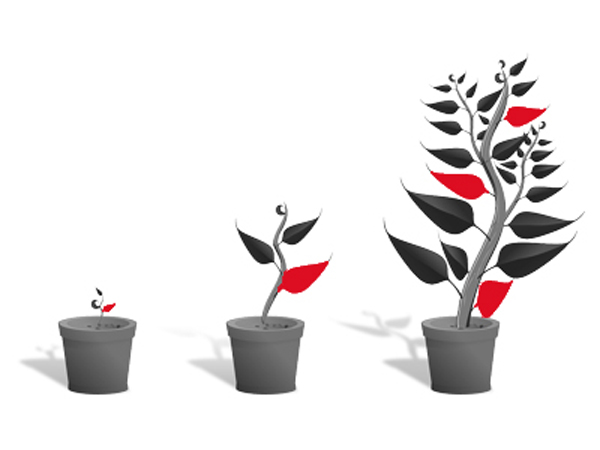Covid-19 has pitched businesses into a situation where all the rules have changed. Instead of moving forwards through the business growth cycle, you might now be in danger of lurching backwards. As a leader, it’s up to you not only to recognise this, but to take advantage of the opportunities it brings.
Matching your culture to the circumstances
Most SMEs go through two identifiable phases as they grow (though most for various reasons end up as a blend of the two). First, there’s the Childhood phase, characterised by excitement, creativity, urgency and being hands on. Your priorities are to ship stuff out and get money in. It’s 24/7, it’s exciting, and it’s full on.
Then there’s the Young Adult phase (let’s forget for the moment the older adult phase of ‘corporate’ life). The Young Adult phase is all about consolidation and structure, defining roles clearly, finding the right people to fill them, and employing new people with their own ways of doing things. Your job as leader here is to create groundrules for behaviour and take your hands off. You are leading with a lighter touch, and providing a framework of values and best practice for other people to work within.
If you’ve been accustomed in recent years to your company being largely in this second phase it may come as a surprise to you that it’s as easy to step backwards in the model as forwards – usually precipitated by circumstances outside your immediate control. Covid is one such circumstance: it’s pitched businesses into a situation where all the rules have changed. And if as a leader, you fail to recognise this, you will miss the opportunities this brings.
The platform is burning…
Take the example of one of our clients, a medium-sized company, born as a family business, whose owner sold the business to the employees and stepped down just as the pandemic was getting under way. The operations director, who had worked for the company for many years since the beginning of his career was recruited as MD just as the country went into lockdown. In the circumstances, he might have been forgiven for battening down the hatches and managing tightly within a familiar framework to keep the company afloat until the crisis is over.
However, what he actually did was to gather his team around him and look for those who had the capacity and willingness to step up. Assigning each of them, within their area of expertise, a crucial part of the strategy for surviving the pandemic, he let them get on with it. He meets virtually with the whole team every week and with each individual every couple of weeks. And though the company faces a tough couple of years, orders are coming in and sales have rallied.
Through paring costs to a minimum and implementing creative new ways of reaching out to clients, all the energy, creativity and enthusiasm of the team has been harnessed to respond to the circumstances. In this respect the company is showing more of the characteristics of that energetic, childlike creative period which normally signifies an earlier stage of a company’s development. The MD says he has never known a team response like it, and the business has a very good chance of surviving in good shape.
Rising to the challenge
What has also shown up is that some people, through no fault of their own, have proved to be more suited to the stable, systematic, structured organisational life that has characterised the last few years – more typical of the Young Adult phase of the business’s lifespan. These employees need more support and hand-holding than senior management can spare at the moment. Their time will come again as business stabilises and senior managers have more time and space to offer people who still need to grow. But whether the business will be able to hold onto these people in the immediate future is still uncertain. Some will respond to coaching and discover reserves in themselves that they didn’t know they had. And some will be happier seeking out an environment in which their need for tighter management and greater guidance can be met.
Adaptability is the key
So, take a good look at your business and what characteristics it needs to exhibit not just to survive but to thrive through this extraordinary period. And take a close look at your leadership style – are you still relying on lengthy decision-making processes and carefully thought-through strategies, or are you willing to be light on your feet and respond flexibly to changing circumstances as they arise? It’s the match between the requirements of the circumstances, the culture of your organisation, and your leadership style, that will ultimately determine how you and your business come through.
